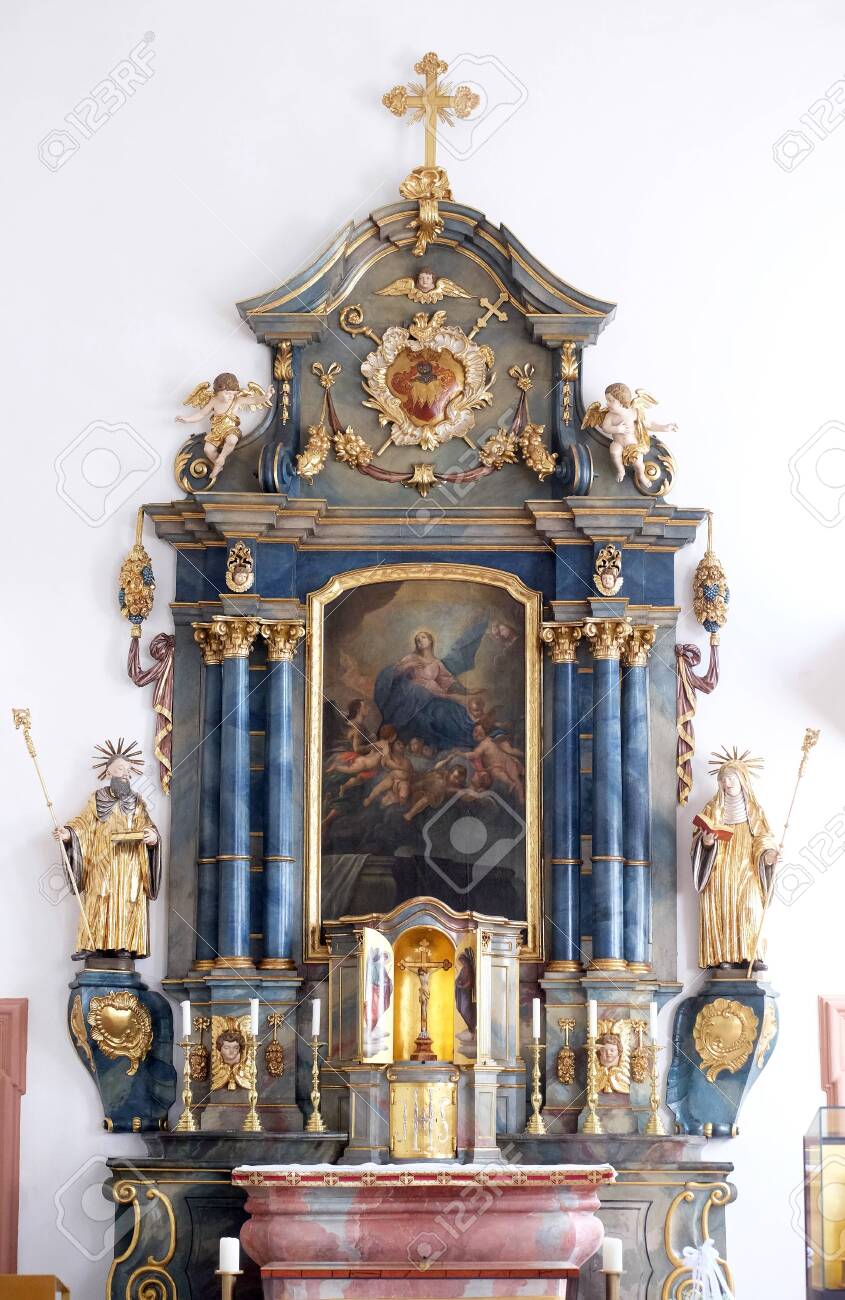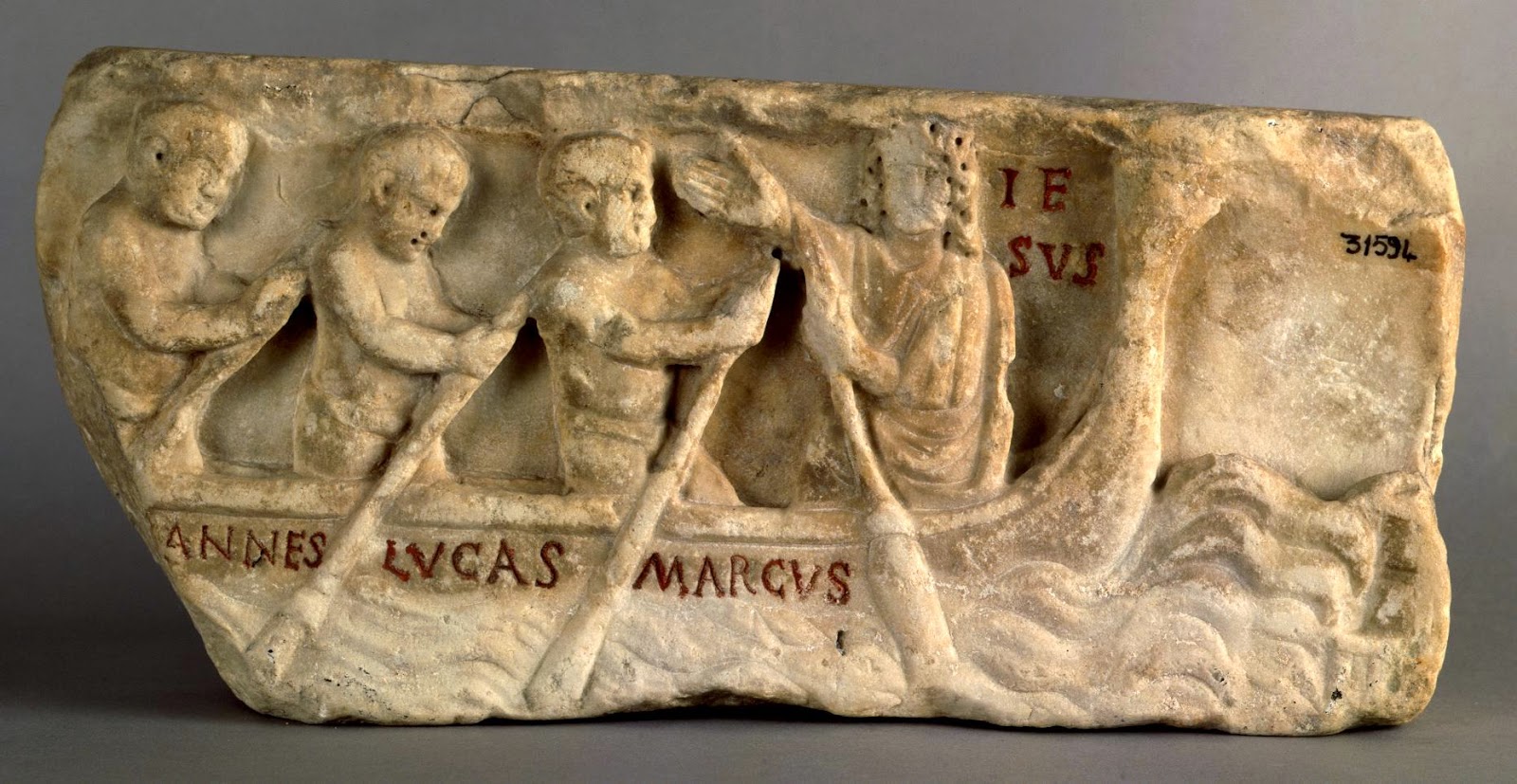Saint Agatha, Virgin, Martyr on Saturday of week 4 in Ordinary Time  High Altar In The Church Of St. Agatha, Schmerlenbach, Germany Readings at MassLiturgical Colour: Red. These are the readings for the feria
Solomon chooses the gift of wisdomKing Solomon went to Gibeon to sacrifice there, since that was the greatest of the high places – Solomon offered a thousand holocausts on that altar. At Gibeon the Lord appeared in a dream to Solomon during the night. God said, ‘Ask what you would like me to give you.’ Solomon replied, ‘You showed great kindness to your servant David, my father, when he lived his life before you in faithfulness and justice and integrity of heart; you have continued this great kindness to him by allowing a son of his to sit on his throne today. Now, O Lord my God, you have made your servant king in succession to David my father. But I am a very young man, unskilled in leadership. Your servant finds himself in the midst of this people of yours that you have chosen, a people so many its number cannot be counted or reckoned. Give your servant a heart to understand how to discern between good and evil, for who could govern this people of yours that is so great?’ It pleased the Lord that Solomon should have asked for this. ‘Since you have asked for this’ the Lord said ‘and not asked for long life for yourself or riches or the lives of your enemies, but have asked for a discerning judgement for yourself, here and now I do what you ask. I give you a heart wise and shrewd as none before you has had and none will have after you. What you have not asked I shall give you too: such riches and glory as no other king ever had.’
Lord, teach me your statutes. How shall the young remain sinless? By obeying your word. I have sought you with all my heart; let me not stray from your commands. Lord, teach me your statutes. I treasure your promise in my heart lest I sin against you. Blessed are you, O Lord; teach me your statutes. Lord, teach me your statutes. With my tongue I have recounted the decrees of your lips. I rejoiced to do your will as though all riches were mine. Lord, teach me your statutes.
Alleluia, alleluia! The sheep that belong to me listen to my voice, says the Lord, I know them and they follow me. Alleluia!
They were like sheep without a shepherdThe apostles rejoined Jesus and told him all they had done and taught. Then he said to them, ‘You must come away to some lonely place all by yourselves and rest for a while’; for there were so many coming and going that the apostles had no time even to eat. So they went off in a boat to a lonely place where they could be by themselves. But people saw them going, and many could guess where; and from every town they all hurried to the place on foot and reached it before them. So as he stepped ashore he saw a large crowd; and he took pity on them because they were like sheep without a shepherd, and he set himself to teach them at some length. These are the readings for the memorial
God chose what is foolish by human reckoning, to shame the wiseTake yourselves for instance, brothers, at the time when you were called: how many of you were wise in the ordinary sense of the word, how many were influential people, or came from noble families? No, it was to shame the wise that God chose what is foolish by human reckoning, and to shame what is strong that he chose what is weak by human reckoning; those whom the world thinks common and contemptible are the ones that God has chosen – those who are nothing at all to show up those who are everything. The human race has nothing to boast about to God, but you, God has made members of Christ Jesus and by God’s doing he has become our wisdom, and our virtue, and our holiness, and our freedom. As scripture says: if anyone wants to boast, let him boast about the Lord.
Into your hands, O Lord, I commend my spirit. Be a rock of refuge for me, a mighty stronghold to save me, for you are my rock, my stronghold. For your name’s sake, lead me and guide me. Into your hands, O Lord, I commend my spirit. Into your hands I commend my spirit. It is you who will redeem me, Lord. As for me, I trust in the Lord: let me be glad and rejoice in your love. Into your hands, O Lord, I commend my spirit. My life is in your hands, deliver me from the hands of those who hate me. Let your face shine on your servant. Save me in your love. Into your hands, O Lord, I commend my spirit.
Alleluia, alleluia! It is a blessing for you when they insult you for bearing the name of Christ, for the Spirit of God rests on you. Alleluia!
The Son of Man is destined to suffer grievouslyJesus said: ‘If anyone wants to be a follower of mine, let him renounce himself and take up his cross every day and follow me. For anyone who wants to save his life will lose it; but anyone who loses his life for my sake, that man will save it. What gain, then, is it for a man to have won the whole world and to have lost or ruined his very self? For if anyone is ashamed of me and of my words, of him the Son of Man will be ashamed when he comes in his own glory and in the glory of the Father and the holy angels.’ The readings on this page are from the Jerusalem Bible, which is used at Mass in most of the English-speaking world. The New American Bible readings, which are used at Mass in the United States, are available in the Universalis apps, programs and downloads. |



